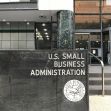Philip Greer, a restaurateur who owns a cafe in Texas, has received a preliminary ruling in his favor after he filed suit against the Small Business Association in the Northern District of Texas Fort Worth Division.
Greer alleges that he was discriminated against by the SBA through a recent aid program offered to the public because he was a white man. During the course of the pandemic, the SBA established a Restaurant Relief Fund program (RRF) that was established to help struggling restaurant owners who faced hardships because of the pandemic. Greer explains that he was discriminated against because his application process would not be looked at immediately because he was a white man.
According to the guidelines of the RRF, for the first 21 days of the application period, the SBA was going to adhere to a mandate that required them to look at individuals who were deemed socially disadvantaged. This definition included the prioritization of women applicants, veterans, and individuals who came from socially and economically disadvantaged groups. Because Greer did not fall under any of these categories, his application was not going to be looked at within the first 21 days of the program’s start. In the complaint, it’s documented that the SBA identified socially disadvantaged individuals as people “who have been subjected to racial or ethnic prejudice or cultural bias because of their identity as a member of a group without regard to their individual qualities.” The complaint describes individuals who fall under this category as including Black Americans, Hispanic Americans, Asian Americans, and Native Americans. Greer explained this was a discriminatory practice that excluded him from access to funding that he needed.
Greer points out in his complaint that his cafe lost roughly $100,000 because of the pandemic. His concern was that if his application was looked at after individuals who fell into the priority group were looked at first, the nearly 29 billion dollars in relief aid would run out by the time his application was considered.
Greer alleged that this blatant discrimination was a direct violation of the Equal Protection Clause of the Constitution. As a result of his alleged discrimination, the court ruled in favor of Greer and issued a temporary restraining order against the SBA. The restraining order placed a hold on the agency's ability to distribute funds based on sexual orientation and race.
Judge Reed O’Connor explained that the defendants, “lack[ed] the industry-specific inquiry needed to support a compelling interest for a government-imposed racial classification.” Judge O'Connor’s ruling went on to explain, “While the Court is mindful of … statistical disparities and expert conclusions based on those disparities, [d]efining these sorts of injuries as 'identified discrimination' would give … governments license to create a patchwork of racial preferences based on statistical generalizations about any particular field of endeavor.” Judge O’Connor also expressed that Greer would face irreparable harm if he had to wait 21 days for his application to be looked at, especially considering there was the possibility that the funds would run out by the time his application could be looked at for relief aid.
Greer was represented by the American First Legal Foundation. The president of the foundation is Stephen Miller, the controversial and outspoken former senior advisor for President Trump. After the ruling, Miller shared that “This ruling is the first, but crucial, step towards ending government-sponsored racial discrimination.” Miller goes on to add in his statement, “There is a fashionable movement among the ultra-elite known as Critical Race Theory.” He adds, “This new wave of government discrimination is evidence of how far that dangerous ideology has permeated — and how strongly we must fight back.”






